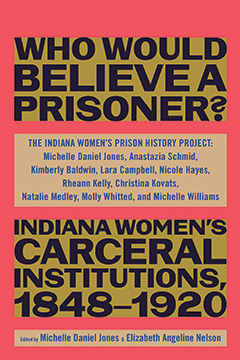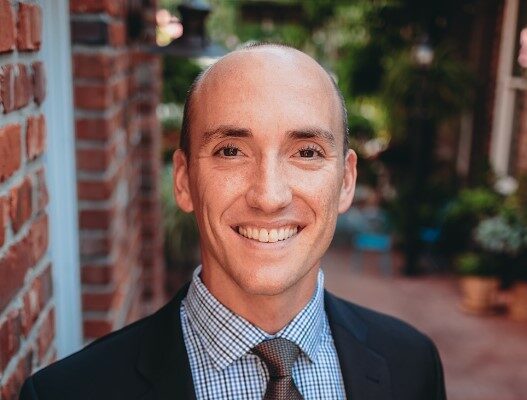
What if prisoners were to write the history of their own prison? What might that tell them—and all of us—about the roots of the system that incarcerates so many millions of Americans?
These questions are addressed in a groundbreaking and revelatory volume co-edited by Dr. Elizabeth Nelson, Assistant Professor of Medical Humanities & Health Studies and Adjunct Assistant Professor of History in the IU School of Liberal Arts at IU Indianapolis. Co-edited also by Michelle Daniel Jones, Who Would Believe a Prisoner?: Indiana Women’s Carceral Institutions, 1848-1920, recently published by The New Press, brings together a group of incarcerated women at the Indiana Women’s Prison to provide a chronicle of what was originally known as the Indiana Reformatory Institute for Women and Girls, founded in 1873 as the first totally separate prison for women in the United States. In an effort that has already made the national news, and which was awarded the Indiana History Outstanding Project for 2016 by the Indiana Historical Society, the Indiana Women’s Prison History Project worked under conditions of sometimes-extreme duress, excavating documents, navigating draconian limitations on what information incarcerated scholars could see or access, and grappling with the unprecedented challenges stemming from co-authors living on either side of the prison walls.
With contributions from ten incarcerated or formerly incarcerated women, the result is like nothing ever produced in the historical literature: a document that is at once a shocking revelation of the roots of America’s first prison for women, and also a meditation on incarceration itself. Who Would Believe a Prisoner? is a book that will be read and studied for years to come as the nation continues to grapple with the crisis of mass incarceration.

The Indiana Women’s Prison History Project (IWPHP) is a group of currently and formerly incarcerated scholars who publish original research on women’s carceral institutions in Indiana, and related issues of gender/sexuality and incarceration, health justice, and reproductive justice. Dr. Elizabeth Nelson has worked with the IWPHP since 2018 as a faculty mentor, collaborator, and co-editor, helping to facilitate the production and dissemination of the scholars’ research in a variety of formats. In 2019-2020, a Charles R. Bantz Chancellor’s Community Fellowship allowed Dr. Nelson to hire several student assistants from SLA to help with program administration and with the IWPHP scholars’ research. One of the book’s authors, Anastazia Schmid, earned a graduate certificate in SLA’s Medical Humanities program in the year after her release from prison (2020).

